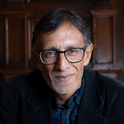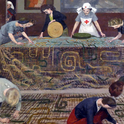This year has seen another batch of record A-level results, continuing a decade-long trend. It is often assumed that the exams must be getting easier, but a perusal of my daughters' A-level papers makes me doubt this: they were really hard! Could it be that people are learning faster and better? I think we're in an era of generosity—a sentiment which applies both to money (witness the recent commitment of 40 US billionaires to give away at least half their fortunes) but also to knowledge. Knowledge used to be power, and as such was closely guarded. Now reputation is power—and giving your knowledge away is the best thing you can do for the benefit of your reputation. Salman Khan was an investment banker—a bright young man (MIT, Harvard Business School) who discovered a facility for explaining mathematics, physics, history, biology and finance. It started when a cousin in Dubai asked him for help with her maths. He made some short videos for her, she showed them to her friends, and they ended up on YouTube, watched by thousands of others. Since then he's given up his job and made over 1,600 videos (on his computer, in a converted closet) with titles like "Role of the Sarcoplasmic Reticulum," "Matrix Vector Products," and "The French Invasion of Russia." It costs nothing to see them, and Khan now calls his non-profit enterprise the Khan Academy (www.khanacademy.org). He has millions of students worldwide; one result of his generosity is that I now understand algebra and bacteria better than I ever did at school. Khan is a conspicuous example of a trend that also includes "freeware"—software that is given away by its makers—and Creative Commons—the abandonment of "all rights reserved" copyright protection in favour of a sharing system. The result is that we are awash with easily accessed knowledge: it's easier to learn now than ever.
Dr Pangloss: knowledge generosity
August 25, 2010











